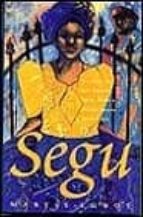


There is Tiekoro, who renounces his people’s religion and embraces Islam Siga, who defends tradition, but becomes a merchant Naba, who is kidnapped by slave traders and Malobali, who becomes a mercenary and halfhearted Christian.īased on actual events, Segu transports the reader to a fascinating time in history, capturing the earthy spirituality, religious fervor, and violent nature of a people and a growing nation trying to cope with jihads, national rivalries, racism, amid the vagaries of commerce. With the award comes a prize sum of 1 million Swedish kronor or 112,000. Segu follows the life of Dousika Traore, the king’s most trusted advisor, and his four sons, whose fates embody the forces tearing at the fabric of the nation. Maryse Condé receives the award for an authorship that describes the ravages of colonialism and the postcolonial chaos in a language which is both precise and overwhelming, the New Academy writes in their press release. From the east comes a new religion, Islam, and from the West, the slave trade. Her other writings include the novels I, Tituba, Black Witch of Salem, Tree of Life, and Crossing the Mangrove. She first won international acclaim for Children of Segu, a novel about Black African experience and the slave trade. Segu is a literary masterpiece I could not put down. Born in Guadeloupe in 1937, Maryse Condé has lived in Africa and a traveled throughout the world. But even their soothsayers can only hint at the changes to come, for the battle of the soul of Africa has begun. Maryse Conde has done us all a tremendous service by rendering history so compelling and exciting. The people of Segu, the Bambara, are guided by their griots and priests their lives are ruled by the elements. The year is 1797, and the kingdom of Segu is flourishing, fed by the wealth of its noblemen and the power of its warriors.


 0 kommentar(er)
0 kommentar(er)
